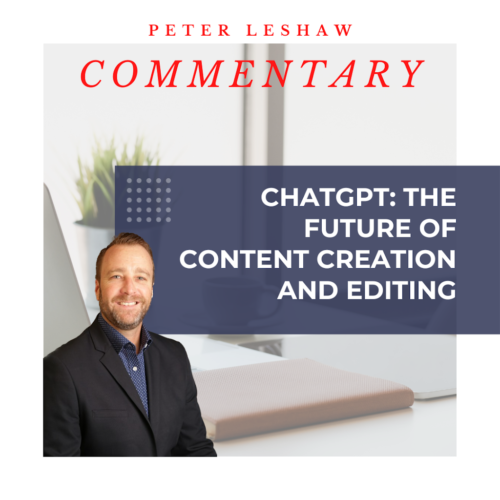The advent of advanced Artificial Intelligence (AI) models like ChatGPT has revolutionized the way we create and consume content. With its ability to generate human-like text, ChatGPT has the potential to significantly impact the writing and editing industries. However, instead of completely replacing writers and editors, this technology is likely to shift their roles and responsibilities.
According to a recent article by Wired, “AI systems like ChatGPT can generate articles, summaries, and even entire books, but they still need human editors to make sure the output is accurate, readable, and makes sense.” As AI continues to advance, it is becoming increasingly capable of generating high-quality content, but it is not yet capable of replacing the expertise and intuition of human editors.
The role of “AI Whisperers” in the editing process
This shift in the writing and editing process will result in writers becoming more focused on the creative aspect of content creation, while editors will take on a new role as “AI Whisperers.” These experts will be responsible for creating the prompts that will guide AI systems in generating the best possible content. As Wired notes, “editors will need to become experts in creating prompts for AI systems that generate content that is accurate, readable, and makes sense.”
The potential for ChatGPT to enhance the writing and editing process
In a recent interview with Forbes, Dr. Fei-Fei Li, a renowned AI expert, discussed the future of AI and its impact on the writing and editing industries. She stated, “AI has the potential to significantly enhance the writing process by taking care of routine and repetitive tasks, freeing up writers to focus on the more creative aspects of writing. In the same vein, editors can use AI to assist with fact-checking and other routine tasks, allowing them to focus on higher-level tasks such as shaping the overall narrative and ensuring the content meets ethical and legal standards.”
The limitations of AI in replacing human creativity and expertise
While ChatGPT and other AI systems may change the way we create and edit content, it is important to remember that they are not a replacement for human creativity and expertise. Instead, they will serve as tools that enhance and augment the skills of writers and editors. As Dr. Li notes, “AI will never replace human creativity, but it will certainly make it easier for humans to do their jobs.”
In conclusion, the impact of ChatGPT on the writing and editing industries will likely result in a shift in the roles and responsibilities of writers and editors. As AI continues to advance, writers will become more focused on the creative aspect of content creation, while editors will take on the role of “AI Whisperers.” With its ability to generate high-quality content and assist with routine tasks, ChatGPT has the potential to significantly enhance the writing and editing process.
-Written with the help of OpenAI’s ChatGPT model, edited and curated by Peter Leshaw
Sources:
- “How AI is Changing the Writing and Editing Process” – Wired
- “The Future of AI and Writing: An Interview with Dr. Fei-Fei Li” – Forbes
- “ChatGPT: OpenAI’s Generative Pre-trained Transformer 3” – OpenAI


